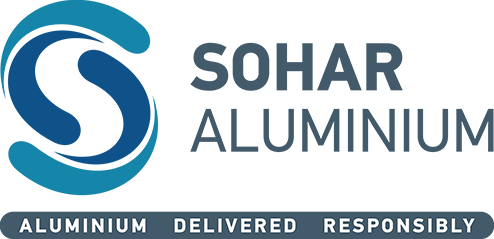Sohar Aluminium has announced the successful completion and testing of its Automation Infrastructure Virtualization Project, an initiative that promises to deliver dramatic gains in system scalability, operational efficiency, and security cost savings over the coming years. With this achievement Sohar Aluminium became the first smelter in the GCC region to completely virtualize its automation infrastructure, thus becoming a regional benchmark in operational efficiency and disaster recovery.
Virtualization is being increasingly embraced by, among others, manufacturing plants as a powerful tool for improving the overall reliability of its IT hardware and software systems, whilst reducing costs in the operation of these assets. Virtualization allows for multiple operating systems to be hosted on a single server, effectively paring the amount of hardware that is required to run all the software needed by the business.
At Sohar Aluminium, all of the physical servers installed at its various operational units have now been transformed into virtual servers hosted centrally in two data centres. Conceptualization and planning for the project began in 2011 and was completed during the first quarter of 2014. The final project stage, Disaster Recovery, was successfully tested last week, bringing to fruition an initiative that is widely regarded as ground-breaking for complex manufacturing industries like Sohar Aluminium.
For the core team that drove the Virtualization Project at Sohar Aluminium, last week’s milestone marked the culmination of a three-year exercise involving multiple departments and teams working hand in hand.
“From the outset, the Virtualization Project involved a great deal of groundwork, given the great many variables that had to be factored into this exercise,” commented Omar Al Balushi, IT Manager. “At the same time, we undertook a lot of risk assessment, while engaging concertedly with staff of the departments involved in this collective endeavour. Rollback plans were also in place in case anything went awry. Last week, however, after a final round of testing, we were proud to declare, ‘Mission Accomplished!’.”
In addition to cost savings, virtualization is set to deliver an array of other tangible benefits as well, says Othman Al Balushi – Automation Superintendent. “As a result of the hardware consolidation that virtualization enabled, we envision a reduction in energy consumption and the carbon footprint, in addition to improved uptime, less heat build-up, centralized backups, faster deployment, extended lifecycles, and more.”
Automation Specialist, Paul Ridgway added, “Equally important is virtualization’s ability to ensure rapid disaster recovery – a feature demonstrated by the successful testing of the Site Recovery Manager (SRM), a tool used for disaster recovery. Virtualization allows for the recovery of the entire site in the event of a major disaster with minimum disruption or downtime”.
“All of these benefits have the added advantage of improving efficiency and productivity, while reducing the cost of computing. Indeed, the efficient use of hardware is one of the biggest benefits of virtualization,” added Saif ul Islam – Infrastructure Lead Engineer.
With this remarkable improvement, Sohar Aluminium plans to further develop its
Virtualization Technologies to incorporate additional systems, thus ensuring optimal asset efficiency throughout the plant.
Sohar Aluminium was formed in September 2004 to undertake a landmark greenfield aluminium smelter project in the Sultanate of Oman, and it is jointly owned by Oman Oil Company, Abu Dhabi National Energy Company PJSC - TAQA and Rio Tinto Alcan.

